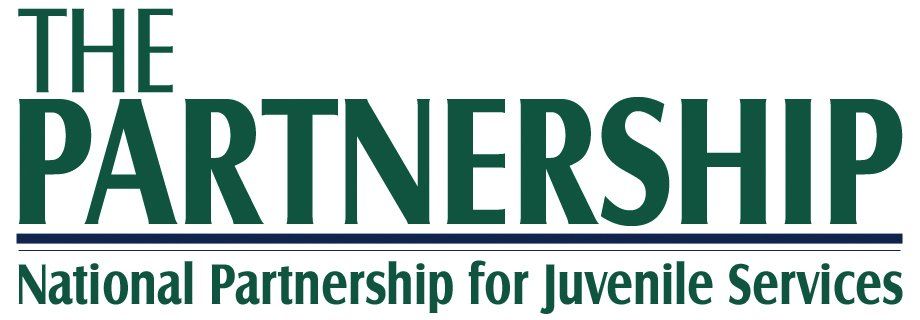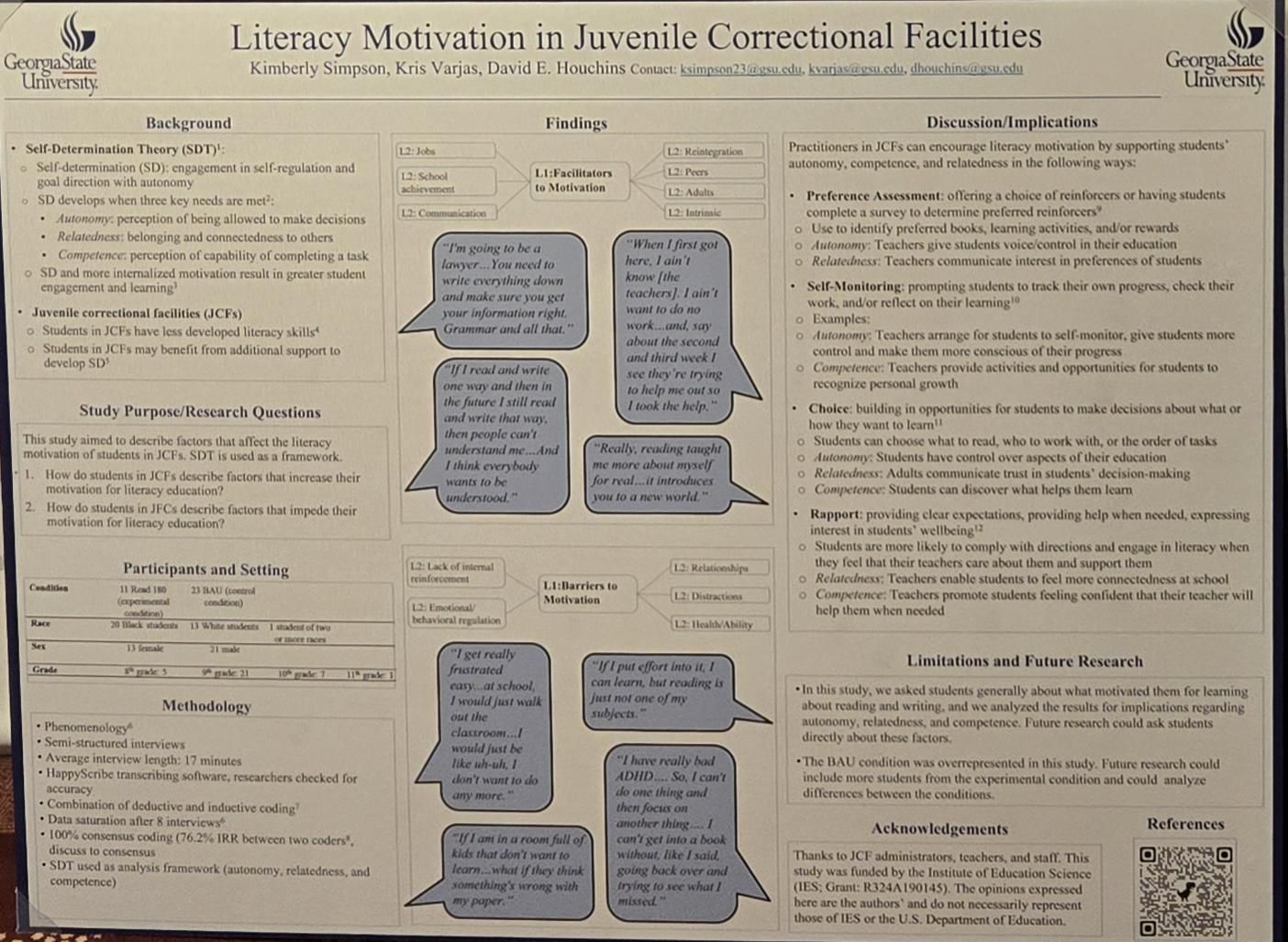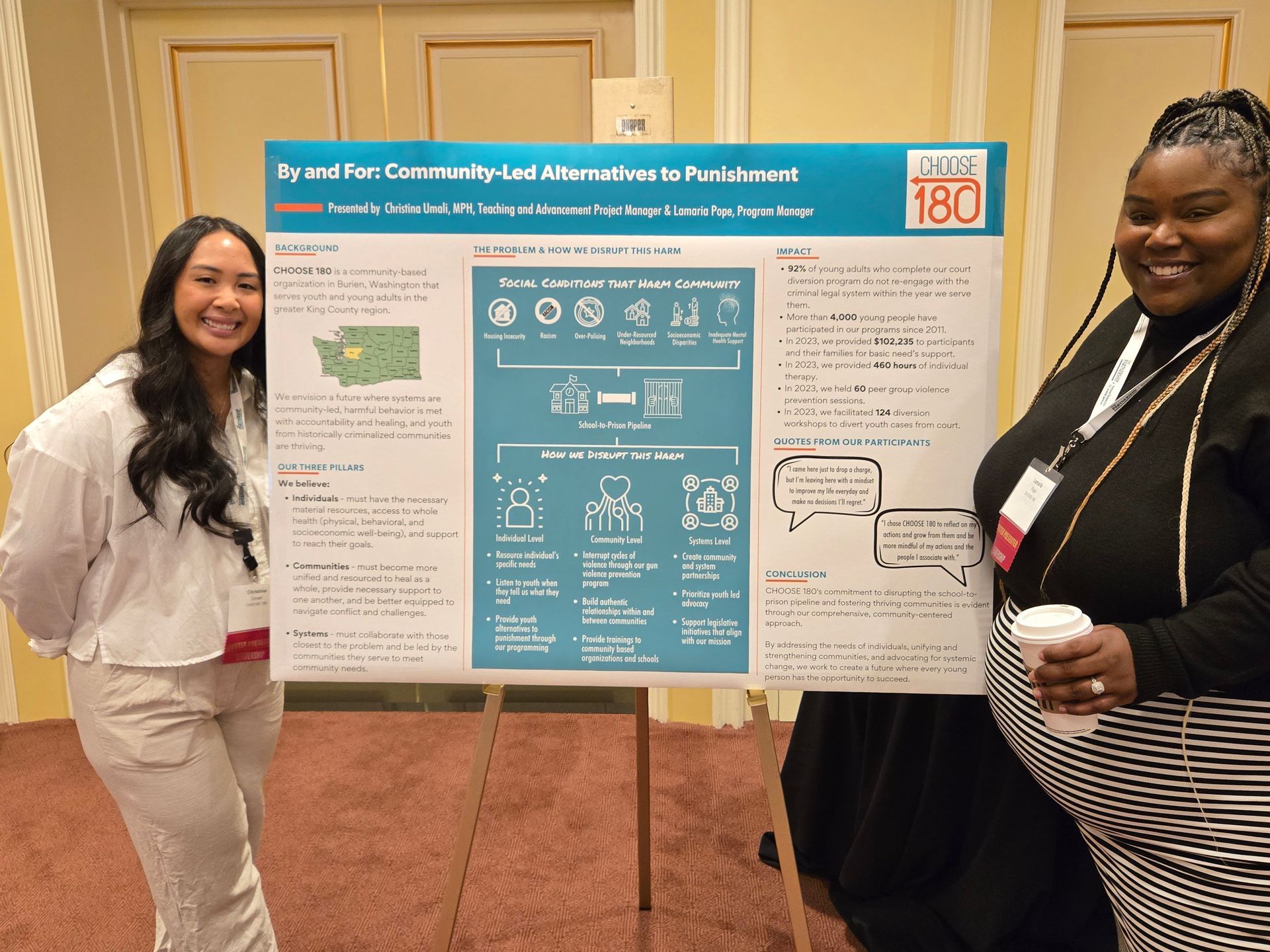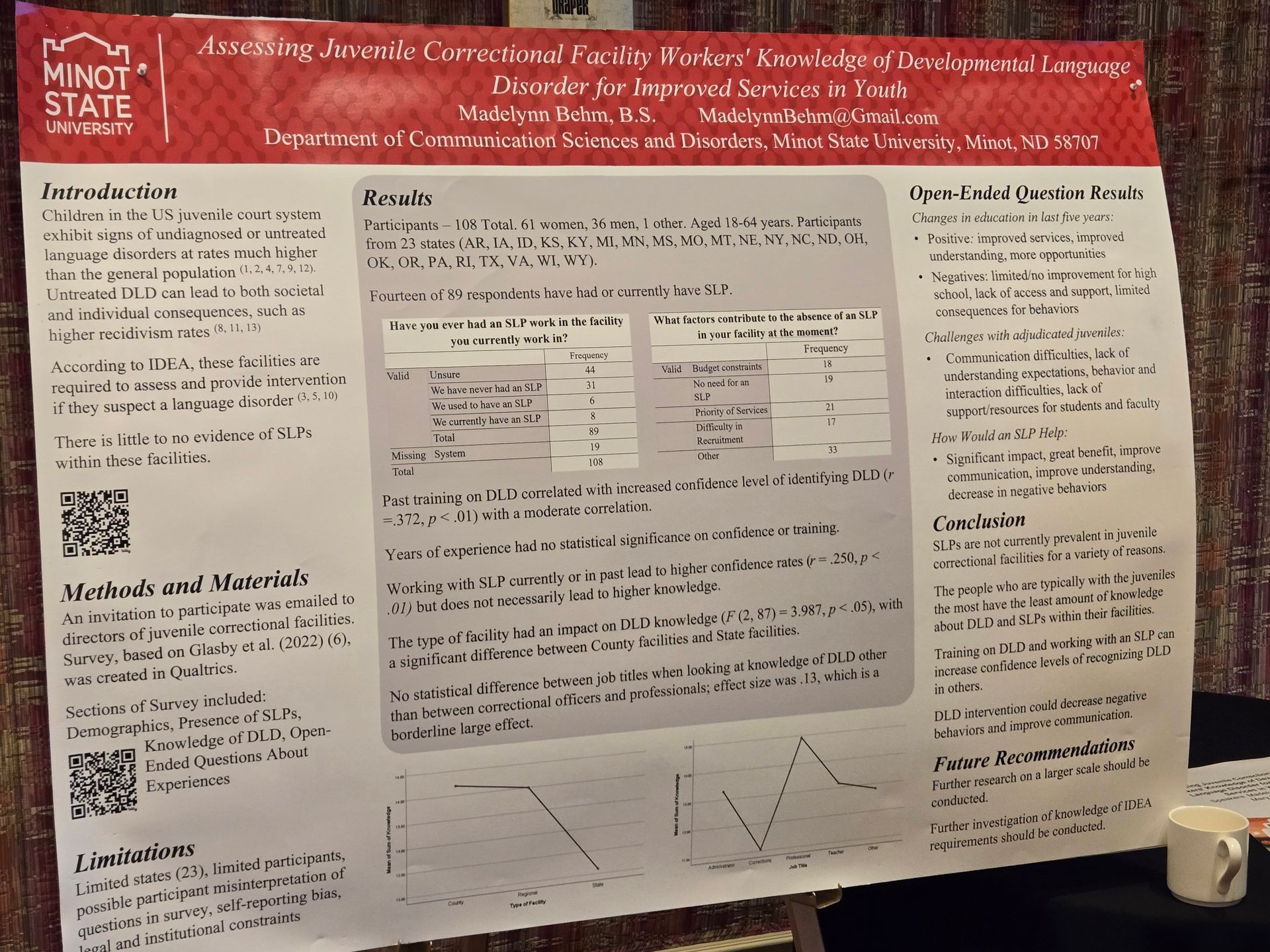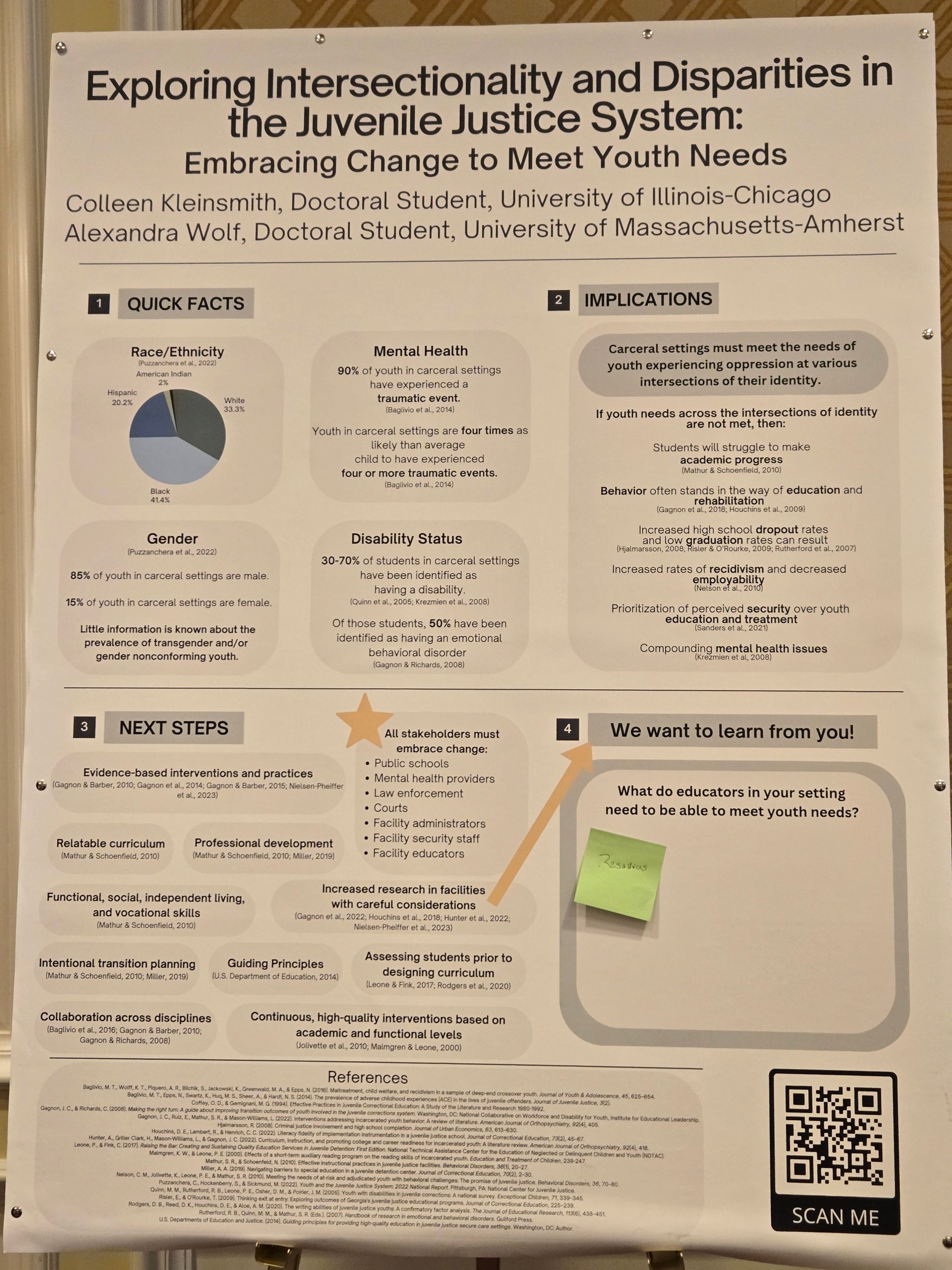Poster Session
The National Symposium on Juvenile Services supplements a wide range of workshops with an annual Poster Session. These presentations offer an engaging, interactive format for students, professors, researchers, and practitioners to share their work and converse with participants in an informal setting. The Poster Sessions are judged by NPJS board members using a scoring rubric based on the following criteria:
- Innovation: How groundbreaking is your research/project?
- Visual Impact: Does your poster captivate the audience?
- Clarity: Can the essence of your research/project be easily understood?
- Relevance: How impactful is your work in the broader context?
Recent Winners
2024 National Symposium on Juvenile Services
Presenters
David Houchins, Ph.D.
Contact: dhouchins@gsu.edu
- Distinguished University Professor - Department of Learning Sciences
- Lead Researcher on Project LIBERATE
- Georgia State University
Kristen Varjas, Psy.D.
Contact: kvarjas@gsu.edu
- Associate Dean for Research and Doctoral Studies Professor - School Psychology Program
- Lead Researcher on Project LIBERATE
- Georgia State University
Topic
Youth Perspectives on Learning Motivation in Juvenile Correctional Facilities
Summary
Students in juvenile correctional facilities (JCFs) display lower average reading and writing skills and often display behaviors in school that interfere with their education, so it is often assumed that they do not see value in education in general. However, it is important to center student voices and perspectives concerning education and motivation for reading and writing. To better understand the motivations and factors that affect motivations of students in JCFs, this qualitative study analyzes interviews with 34 students from three JCFs about their motivations for reading and writing and what facilitates or hinders their motivation. The resulting themes are analyzed using Self-Determination Theory (SDT) as a framework. The interview themes suggest understanding of the benefits of strong reading and writing skills, and they align with SDT in suggesting that students are motivated to learn and work in class when they have experiences that emphasize their autonomy, relatedness, and competence.
